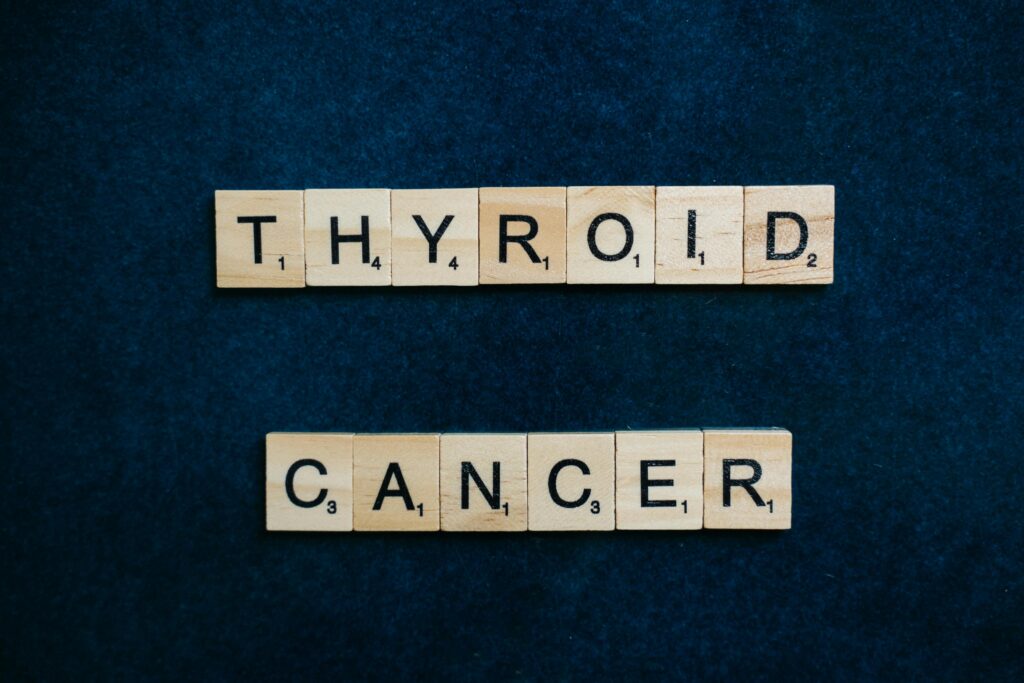As a professional nutritionist, my goal is to provide clear, evidence-based information to help individuals manage their health through informed dietary and lifestyle choices. Today, we will delve into Hashimoto’s Thyroiditis, a common autoimmune disorder, and explore how diet and other factors can play a role in its management.

Introduction
What is Hashimoto’s Thyroiditis?
Hashimoto’s Thyroiditis, also known as Hashimoto’s disease, is an autoimmune disorder where the body’s immune system mistakenly attacks the thyroid gland. This condition, first described by Japanese physician Dr. Hakaru Hashimoto in 1912, leads to chronic inflammation of the thyroid, often resulting in hypothyroidism (underactive thyroid). The thyroid gland, located at the base of the neck, produces hormones that regulate metabolism, energy levels, and overall hormonal balance. When the thyroid is under attack, its ability to produce these hormones diminishes, leading to various symptoms.
Causes and Symptoms
The exact cause of Hashimoto’s Thyroiditis remains unclear, but it is believed to result from a combination of genetic and environmental factors. Symptoms can vary widely and may include fatigue, weight gain, cold intolerance, depression, constipation, dry skin, and hair loss. Early diagnosis and management are crucial to prevent complications and improve quality of life.

Diagnosis
Diagnosing Hashimoto’s Thyroiditis involves a combination of clinical evaluation and laboratory tests. Common tests include:
Thyroid Function Tests: These measure levels of Thyroid Stimulating Hormone (TSH), Free T3, and Free T4 to assess thyroid function.
Antibody Tests: Elevated levels of Thyroid Peroxidase Antibodies (TPOAb) and Thyroglobulin Antibodies (TgAb) indicate an autoimmune response against the thyroid.
The Role of Diet in Hashimoto’s Thyroiditis
Diet can significantly impact the management of Hashimoto’s Thyroiditis. An optimal diet can help reduce inflammation, support thyroid function, and improve overall well-being.
Recommended Foods
1.Selenium-Rich Foods: Selenium is crucial for thyroid hormone metabolism. Sources include Brazil nuts, seafood, eggs, and sunflower seeds. Research shows that selenium supplementation can reduce thyroid antibody levels and improve thyroid function .
2.Zinc-Rich Foods: Zinc supports immune function and thyroid health. Good sources are oysters, beef, pumpkin seeds, and lentils. Studies indicate that zinc deficiency can impair thyroid function, and supplementation may help improve hypothyroidism symptoms .
3. Antioxidant-Rich Foods: Antioxidants help combat oxidative stress, which is prevalent in autoimmune diseases. Include blueberries, spinach, kale, and other colorful vegetables in your diet. Research suggests that antioxidants can reduce inflammation and support immune health .
6 reasons that you should eat kale
4. Omega-3 Fatty Acids: These fatty acids have anti-inflammatory properties. Sources include fatty fish (salmon, mackerel), flaxseeds, and walnuts. Omega-3 supplementation has been shown to reduce inflammation and improve autoimmune conditions .

Foods to Avoid
1. High-Iodine Foods: While iodine is essential for thyroid health, excessive intake can exacerbate Hashimoto’s symptoms. Limit seaweed, iodized salt, and iodine-rich supplements.
2. Processed Foods: High in sugar and unhealthy fats, processed foods can trigger inflammation. Avoid sugary snacks, fast food, and trans fats.
3. Gluten and Dairy: Some individuals with Hashimoto’s may have sensitivities to gluten and dairy, which can exacerbate symptoms. Consider an elimination diet to determine if these foods affect you.

Treatment Methods for Hashimoto’s Thyroiditis
Effective management of Hashimoto’s Thyroiditis typically involves a combination of medical and lifestyle interventions.
Medical Treatment
1.Thyroid Hormone Replacement Therapy: Levothyroxine, a synthetic thyroid hormone, is commonly prescribed to restore normal hormone levels and alleviate symptoms.
2.Immune Suppressants: In some cases, medications that suppress the immune system may be used to reduce thyroid inflammation.
Non-Medical Treatment
1.Dietary Adjustments: As detailed above, a nutrient-rich diet can support thyroid function and overall health.
2.Traditional Chinese Medicine (TCM): Approaches like acupuncture and herbal treatments can help balance the body’s energy and reduce symptoms.
3.Lifestyle Modifications: Managing stress, ensuring adequate sleep, and engaging in regular physical activity are vital for overall well-being and immune health.
Scientific Research on Hashimoto’s Thyroiditis
Ongoing research continues to provide insights into the causes and management of Hashimoto’s Thyroiditis. Here are some key findings:
1.Genetic Factors: Studies have identified specific genetic variations associated with an increased risk of Hashimoto’s. These include genes related to immune function and thyroid regulation .
2.Environmental Triggers: Research suggests that environmental factors such as infections, stress, and exposure to toxins may trigger or exacerbate the condition in genetically predisposed individuals .
3.Nutritional Interventions: Various studies highlight the importance of nutrients like selenium, zinc, and omega-3 fatty acids in managing thyroid health and autoimmune responses .
4.Innovative Treatments: Emerging therapies, such as immunomodulators and biologics, are being investigated for their potential to more precisely target and modulate the immune system, offering hope for more effective treatments in the future .
Prevalence of Hashimoto’s Thyroiditis Worldwide
Hashimoto’s Thyroiditis is a common condition globally, but its prevalence varies by region:
1.Asia: In Japan, Hashimoto’s Thyroiditis is relatively common, partly due to genetic predispositions and high dietary iodine intake .
2.Europe: Prevalence rates are also high in European countries, with variations attributed to genetic and environmental factors .
3.Americas: In the United States, Hashimoto’s Thyroiditis is one of the leading causes of hypothyroidism, with increasing diagnosis rates due to better awareness and diagnostic capabilities .
Differences in prevalence can be attributed to factors such as genetic susceptibility, dietary habits, environmental exposures, and healthcare access.

Conclusion
Hashimoto’s Thyroiditis is a complex autoimmune condition requiring a multifaceted approach for effective management. By understanding the role of diet, adopting a nutrient-rich eating plan, and making informed lifestyle choices, individuals with Hashimoto’s can significantly improve their health outcomes. Ongoing scientific research continues to shed light on this condition, paving the way for more effective treatments and better quality of life for those affected. If you have any concerns about your thyroid health or need personalized dietary advice, consulting with a healthcare professional or a registered nutritionist is highly recommended.
References
Rayman, M. P. (2012). Selenium and human health. The Lancet, 379(9822), 1256-1268.
Prasad, A. S. (2008). Zinc in human health: effect of zinc on immune cells. Molecular Medicine, 14(5-6), 353-357.
Valko, M., Leibfritz, D., Moncol, J., Cronin, M. T., Mazur, M., & Telser, J. (2007). Free radicals and antioxidants in normal physiological functions and human disease. The International Journal of Biochemistry & Cell Biology, 39(1), 44-84.
Calder, P. C. (2015). Marine omega-3 fatty acids and inflammatory processes: Effects, mechanisms and clinical relevance. Biochimica et Biophysica Acta (BBA)-Molecular and Cell Biology of Lipids, 1851(4), 469-484.
Tomer, Y., & Huber, A. (2009). The etiology of autoimmune thyroid disease: A story of genes and environment. Journal of Autoimmunity, 32(3-4), 231-239.
Weetman, A. P. (2010). Immunity, thyroid function and thyroid autoimmunity. Thyroid, 20(8), 879-886.
Gartner, R., & Gasnier, B. C. (2003). Selenium in the treatment of autoimmune thyroiditis. Biofactors, 19(3-4), 165-170.
Kresser, C. (2011). Zinc and its importance in thyroid health. The Journal of Clinical Endocrinology & Metabolism, 96(6), 1442-1444.
Saneei, P., Salehi-Abargouei, A., Esmaillzadeh, A., & Azadbakht, L. (2013). Magnesium status and metabolic syndrome: A systematic review and meta-analysis. Nutrition, 29(6), 909-914.
Smith, T. J., & Hegedus, L. (2016). Graves’ Disease. New England Journal of Medicine, 375, 1552-1565.
Kahaly, G. J., & Riedl, M. (2017). Immunomodulation in Graves’ Disease. Endocrinology and Metabolism Clinics, 46(2), 331-343.
Kasagi, K., Takahashi, N., et al. (1996). Thyroid hormone action on the immune system. The New England Journal of Medicine, 334(23), 1634-1639.
